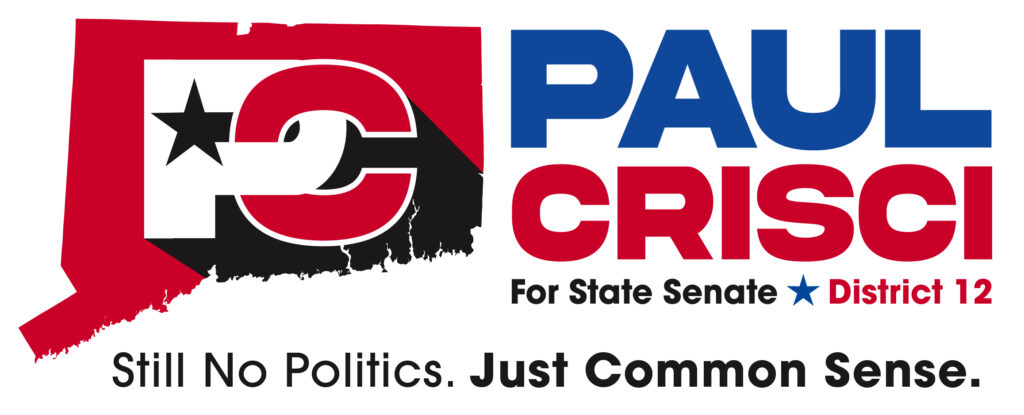NEWS
DATE: 9/19/24
Utility Bill Shock Becomes an Inconvenient Issue During Election Season
Connecticut Republicans have sounded the alarm, demanding explanations and solutions from Governor Lamont as constituents voice their frustrations. Senator Republican leader Harding (R) and House Minority Leader Vinny Candelora (R), among other GOP figures, have called for a special session to address the crisis. However, Democrats have largely remained quiet, with Senator Looney (D) accusing Republicans of attempting to score political points during this contentious election season. Looney stated, “They’re looking to take advantage, scapegoating Democrats for 2017, and now all of a sudden, they want to run away from it. Republicans are banking on the complexity to simplify and take political advantage.”

In the midst of this political back-and-forth, Senate hopeful Paul Crisci has stepped forward with both concerns and proposed solutions. A two-time candidate for the District 12 senate seat, Crisci remarked, “I can’t say I often agree with the views of Senator Looney, but I do agree that this is nothing new. Everyone involved knew this was an issue, and many chose to ignore it.” Crisci emphasized that two key questions demand answers: how Connecticut arrived at its current situation and who is responsible for the various pass-through fees inflating electric bills.
Crisci highlighted the fundamental issue at stake: the management of taxpayers’ dollars. “Electricity just happens to be the issue of the moment, but the core issue is how Majority leadership in Hartford is handling finances,” he stated. During his 2022 campaign, Crisci raised concerns about the state’s fiscal management, only to be dismissed as “clueless.” He insists that what the politicians label a “rainy day fund” is instead a redirection of ARPA funds, federal aid meant to help states during the pandemic.
“Connecticut received $2.8 billion in ARPA funds from the U.S. Treasury Department. Why were these funds not used to pay the moratorium fees Governor Lamont instituted during the COVID crisis?” Crisci questioned. He emphasized the controversial “Public Benefit Charge” listed on Eversource bills, urging scrutiny of how long the Democratic majority has been in power without addressing these concerns. Crisci expressed frustration over the electric vehicle (EV) infrastructure charges that appear on Eversource bills also as a “public benefit charge”. “Residents are being asked to pay for infrastructure that should be funded by the already high vehicle property taxes Connecticut residents pay,” he argued. “Considering more than 90% of residents have shown little or no interest in owning an electric vehicle, it seems unfair.”
Moreover, Crisci criticized Senator Cohen’s push for a 100% electric vehicle mandate by banninggas-powered vehicles no later than 2035, calling it a potential burden that could lead to even higher costs for taxpayers.
“This is why residents need to take a closer look at the people running for office and stop just voting along party lines. Connecticut needs fresh blood in office, and the statistics support that,” Crisci said. He noted that U.S. News & World Report ranks Connecticut 49th for fiscal responsibility, while Save on Energy ranks it second worst in the country for electric bill costs.
Crisci firmly believes that electing representatives who prioritize constituents’ needs over party loyalty is crucial. He aimed sharp criticism at Cohen, stating, “Respectfully, Christine Cohen has been in office for six years, yet she cannot offer one solution to this issue. Her only response to constituents’ concerns was sympathy and a promise to help her own family.”
Crisci also reminded everyone that back in October 2022, just weeks before her last election, Senator Cohen posted a similar statement informing District 12 residents that they could attend an in-person public hearing by the Public Utilities Regulatory Authority (PURA) to voice their displeasure. “I’m sorry,” Crisci disputed. “In my opinion, a senator’s job is to fight on behalf of their constituents, not ask them to advocate for themselves.”
When asked about his plans if elected, Crisci outlined key measures he would champion if elected:
- Reform PURA: Replace it with an independent council representing each district in Connecticut comprised of energy professionals focused on clean, affordable energy options.
- Ban Pass-Through Fees: Ensure that bills sent to residents only include the products or services purchased and any applicable state taxes.
- Utilize COVID Relief Funds: Direct funds intended for COVID relief to pay off debts owed to Eversource, which would alleviate some of the financial strain on residents.
- Create an Open Market for Energy: Establish a competitive energy market overseen by elected representatives responsible for advocating for their districts.
- Review DEEP’s Role: Allow DEEP to make regulatory recommendations but ensure that elected officials make final energy decisions, keeping them accountable to constituents.
- Explore Clean Energy Options: Ensure that all forms of clean energy are available as options for Connecticut residents, including but not limited to nuclear and hydrogen energy, as well as studying the increase of natural gas supply.
As the election approaches, the choices made by Connecticut voters will profoundly influence the state’s approach to the ongoing utility crisis. Crisci stated, “It’s imperative that these decisions focus not on party loyalty but on candidates who will address the needs of the people. The issues are complex, but solutions are within reach if we are willing to prioritize the interests of Connecticut residents over partisan politics.”
